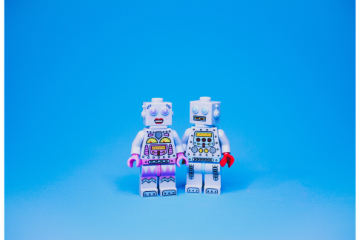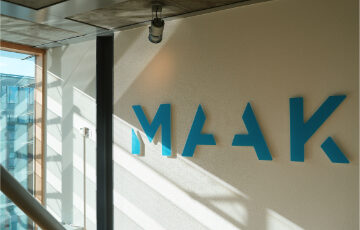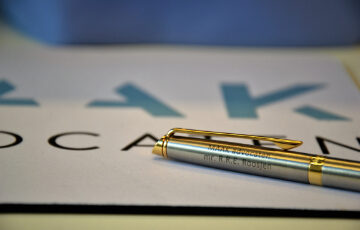
Product liability in the Netherlands is an important legal topic, and one that affects many businesses in this country. As a Dutch legal expert for Product Compliance & Liability Law, it’s my job to provide you with all the necessary information on this subject so that you can make informed decisions about your business operations. In this article, I’ll explain how product liability works in the Netherlands and what legal considerations companies should take into account when selling products here. We’ll also look at recent developments in Dutch law related to product liability, which could affect your company’s activities. Finally, I’ll outline some steps you can take to reduce potential risks associated with product liability issues in the Netherlands.
By taking the time to understand these rules and regulations, you can be sure that your business operates within Dutch laws while still providing quality products for customers. So read on to learn more about product liability in the Netherlands.
Overview Of Dutch product liability Regulations
As the Dutch proverb goes, “Prevention is better than cure“. This adage applies to product liability in the Netherlands, where manufacturers and producers must be mindful of their obligations. In this section, we will provide an overview of key regulations related to product liability claims and court decisions in the Netherlands.
The European Union (EU) also plays a role in setting standards and guidelines related to product liability legislation within the Netherlands’ borders. Companies operating across EU countries must comply with EU directives on topics such as consumer protection and environmental preservation – both of which could have implications regarding product liability cases if not met properly. As such, companies should be aware of any applicable laws before engaging in manufacturing activities throughout Europe.
The basic Dutch laws governing product safety are set out in:
- the Commodities Act;
- the General Product Safety (Commodities Act) Decree; and
- the General Product Safety (Commodities Act) Regulations;
- the Commodities Act and the decree implement the EU General Product Safety Directive (2001/95/EC) in the Netherlands. Both the Commodities Act and the decree govern the safety of all product types.
Dutch product liability Act
Dutch product liability law rests upon three pillars:
Product Liability Act found at Articles 6:185-6:193 of the Dutch Civil Code (implementation of EU Product Liability Directive); Contractual liability may fall within several categories of law: Article 6:74 of the Civil Code and various consumer sales statutes such as Article 7:24 for consumer sales transactions as well as 6:77 (liability for unfit used things) of the Civil Code); as well as tort-based liabilities as defined by Article 6:162 of the Civil Code.
Under Dutch law, a manufacturer or producer can be held liable when it produces products that cause injury or damage to people or property. All parties involved in the production chain are responsible for ensuring the safety of consumers and businesses alike. When a company fails to do so, they can face litigation for failing to meet these obligations. The most recent legislation concerning product liability has been implemented in 2018 with regards to medical devices and pharmaceuticals.
Revised Product Liability Directive (EC Proposal, 2023)
Recently, the European Commission adopted two proposals designed to adapt liability rules to reflect today’s digital environment, circular economy and global value chains, i.e. the Revised Product Liability Directive.
First and foremost, the paper proposes modernising existing rules pertaining to strict liability of manufacturers for products (from smart technology to pharmaceuticals). Revamped rules will give businesses legal certainty to invest in innovative new products while assuring victims can receive fair compensation when defective digital and refurbished goods cause harm.
Second, the Commission proposes for the first time an intentional harmonization of national liability rules related to AI so that victims who experience damage as a result of its use are more easily eligible for compensation. Underlining the objectives of both the AI White Paper and 2021 AI Act proposal by the Commission – setting forth an exceptional and trust framework in AI – the new rules will guarantee victims are offered equal protection when affected by products or services provided through artificial intelligence technologies as they would if such harm occurred under any other circumstances.
Manufacturer Obligations And Responsibilities under Dutch law
Manufacturers in the Netherlands have certain obligations and responsibilities under Dutch product liability legislation. The main responsibility is to ensure that their products are safe when used as intended, or in reasonably foreseeable circumstances. Manufacturers must take all necessary steps to adhere to safety requirements within the Netherlands, including correctly labeling products and providing instructions for use. They also need to identify any potential risks associated with the product, such as possible pitfalls of improper use or misuse by consumers.
The Dutch government has established a system where manufacturers can be held liable for damages resulting from defective products. If a manufacturer fails to meet its obligation of ensuring the safety of its products and someone is injured or killed due to an unsafe product, then they may be found responsible for paying compensation according to Dutch law. This includes both economic losses (such as medical bills) and non-economic losses (pain and suffering). In addition, punitive damages may be awarded if it is determined that the manufacturer was negligent in taking reasonable measures to protect against injury caused by their product.
It should be noted that there are exceptions where manufacturers cannot be held liable even if a defect exists in one of their products – such as cases involving natural wear and tear or changes made after purchase by a consumer. However, overall manufacturers have a duty of care towards consumers when it comes to producing goods which are fit for purpose and free from defects; failure to do so could result in significant legal consequences for them. Moving forward, we will discuss different types of claims related to product liability in the Netherlands and provide some examples.
Types Of Claims And Examples
In the Netherlands, consumers may pursue product liability claims due to a defect in a product or service that causes harm. It is important for manufacturers and sellers of products to be aware of their obligations under Dutch law when it comes to protecting customers from any potential risks associated with their products.
There are various types of product liability claims available in the Netherlands, such as:
- Negligence-based claims;
- Strict liability claims;
- Breach of warranty claim; and
- Misrepresentation/fraudulent claims.
The most common type of product liability case involves negligence-based claims which require proof that the manufacturer or seller was negligent in failing to provide adequate warnings about possible risks associated with a particular product or service. Additionally, strict liability cases do not require proof of fault but rather simply prove that an individual has suffered injury due to a defective product or service they purchased. For breach of warranty cases, consumers must demonstrate that there is evidence indicating that the manufacturer breached its duty to repair or replace faulty goods within a certain time period after receiving notice of the defectiveness. Lastly, misrepresentation/fraudulent cases involve proving false advertising on behalf of the company selling the defective item(s).
When successful, claimants can receive financial compensation for damages related to medical expenses, lost wages, pain and suffering endured due to injuries caused by defective products or services as well as punitive damages if applicable. There have been numerous examples of dutch product liability lawsuits resulting in compensations ranging from small amounts up into hundreds of thousands euros depending on severity and circumstances surrounding each particular case. With this in mind, companies operating within the Netherlands should carefully consider risk factors associated with producing and marketing potentially dangerous items before releasing them onto the market for sale.
Risk Factors For Companies
The Netherlands has a unique and complex system of product liability regulations, which companies must be aware of in order to protect their interests. As such, it is essential that business owners understand the risks associated with negligence claims and other potential liabilities when selling products within this country. To illustrate, let us consider a few key factors.
First and foremost, Dutch courts will often look at whether or not the manufacturer demonstrated reasonable care in producing and distributing their product. This includes examining how they tested their products prior to sale, as well as ensuring all relevant safety standards were met along the way. Companies should take great caution here; any failure on this front may result in litigation.
Moreover, strict rules are applied for determining who is liable for damages caused by defective products in the Netherlands. This can include suppliers, distributors, wholesalers and even retailers if certain criteria have been fulfilled. It is therefore important that businesses thoroughly investigate their obligations before entering into agreements with customers; doing so could save them from significant financial losses down the line.
To sum up then: companies operating in Holland must be vigilant about Dutch product liability issues if they wish to avoid costly legal proceedings and judgments later on.
Court Proceedings And Judgments
When it comes to product liability in the Netherlands, court proceedings and judgments can have a major impact on companies. In Dutch law, courts will consider factors such as negligence when ruling on product liability cases. The burden of proof lies with the claimant, who must demonstrate that the defendant was negligent or reckless and is therefore liable for any damages suffered. Consequently, those claiming damages in Dutch lawsuits need to be aware of their rights and obligations under Dutch product liability law.
During court proceedings, parties may submit evidence which could influence the final judgement. This includes witness statements from experts or other relevant persons involved in the case. Additionally, all documents related to the production process must be made available for review by both parties during court proceedings. Furthermore, if necessary, a technical expert opinion can also be requested from an independent firm at a cost borne by one or both of the parties involved in the dispute.
Ultimately, once all submissions are considered by the judge presiding over the case, they will determine whether there has been sufficient evidence provided to prove negligence or recklessness on behalf of either party. If so, then a judgment will be issued outlining how each party should proceed based upon this determination. From here claimants may seek compensation via legal action againstthe responsible company according to Dutch civil procedure rules. As such, understanding local laws pertaining to product liability matters is essential for businesses operating within The Netherlands. Moving forward into our next section we focus on ways victims can claim damages in Dutch lawsuits resulting from product liability incidents involving negligence or recklessness on behalf of suppliers or manufacturers.
Statutory Requirements For Liability
The Netherlands has a long tradition of holding companies liable for defective products that cause harm to consumers. Like a lighthouse guiding sailors in the night, the Dutch product liability statute is there to protect people from dangerous goods and provide redress when they are injured. Let us explore how this law operates on behalf of those who have been wronged by negligent manufacturers.
Under the Dutch product liability statute, defendants are presumed liable if a person was harmed while using their product as intended or foreseeable uses, unless it can be proven otherwise. To hold up their end of the bargain, claimants must prove three elements: 1) that a defect existed; 2) that the defendant had knowledge of said defect; 3) that such defect caused injury or damage. Courts tend to interpret these criteria quite broadly in favor of victims.
Dutch courts may also consider certain defenses against product liability claims. These include an absence of negligence on part of manufacturer due to use of reasonable care and skill during production process and compliance with applicable safety regulations at time of sale. Additionally, evidence showing claimant’s own fault leading to damages may result in partial exoneration from liability for defendant. With all this considered, one thing remains clear – navigating through court proceedings related to product liability in The Netherlands requires expertise and specialized legal assistance.
Having now explored statutory requirements for product liability here in The Netherlands, let’s look next into what measures exist regarding products safety regulation in the country.
Products Safety In The Netherlands
Having outlined the statutory requirements for liability, we now turn to products safety in the Netherlands. Dutch product liability law provides comprehensive protection for consumers from defective and dangerous products. The regulatory framework for product liability is founded on principles of strict liability, which holds manufacturers responsible regardless of fault or negligence. This means that a manufacturer is liable if their product causes harm due to any defect whatsoever. In addition, producers are subject to specific obligations concerning the safety of their products under Dutch law as well as European Union legislation.
The combination of stringent regulation and enforcement by different authorities creates an effective system for protecting consumers against potentially harmful products available on the market in the Netherlands. As such it serves as an important safeguard to ensure all those purchasing goods have confidence when doing so, knowing that they will be protected should anything go wrong with what they purchase. Moving forward let us explore further how this system works through examining its underlying regulatory framework more closely.
Regulatory Framework For Product Liability
In the Netherlands, product liability falls under Dutch civil law. The main source of this law is the Civil Code (Burgerlijk Wetboek). It outlines what constitutes a defective product and who has responsibility for damages due to such products. This includes manufacturers, importers, distributors, sellers and even former owners of a product if they have transferred ownership.
The Dutch Product Liability Act also applies in cases where the Civil Code does not offer sufficient protection or when parties involved are from different EU countries. Furthermore, the Unfair Competition Law offers additional protection against deceptive practices related to goods and services on the market.
When it comes to claims processes for product liability in the Netherlands, courts may impose strict liability upon producers and suppliers as long as certain conditions are met; however, plaintiffs must typically prove that there was indeed negligence or fault on behalf of these companies in order to receive compensation for any incurred damages. With all this in mind, having an experienced product liability lawyer can be invaluable when navigating through legal proceedings related to product safety issues in the Netherlands.
Product Liability Lawyer In The Netherlands
Navigating the product liability laws in The Netherlands can be like sailing a ship across turbulent waters. With its complex legal framework, you need an experienced guide to make sure your journey is smooth and successful. A product liability lawyer in the Netherlands provides this guidance and knowledge of Dutch consumer protection laws.
Here are some compelling reasons why hiring a product liability lawyer in the Netherlands is beneficial:
- They understand all aspects of Dutch law related to product liability, including risk management strategies, settlements, and consumer protection regulations.
- They have access to resources such as scientific research, expert witnesses, and other evidence that may be necessary for your case.
- They handle negotiations with manufacturers and insurers on behalf of their clients to ensure they receive fair compensation for damages or losses incurred due to faulty products.
Product liability lawyers in the Netherlands are also adept at evaluating negligence defenses used by defendants in lawsuits involving defective products. This expertise helps them build strong cases on behalf of their clients so that they get the justice they deserve for any harm caused by dangerous or hazardous goods. As such, it’s crucial to work with a qualified professional who knows how these laws affect consumers when selecting a product liability lawyer in The Netherlands. Negligence defenses will be discussed next; understanding these intricacies can help protect consumers from potential financial loss resulting from unsafe items being sold within the country’s borders.
Negligence Defenses In Lawsuits
In the Netherlands, product liability law is designed to protect consumers from defective or hazardous products. When a person is injured by such a product, they may be eligible for compensation due to the negligence of the manufacturer or seller. In order to determine if negligence has been committed and whether it can be defended against, it’s important to understand what defenses are available in Dutch product liability lawsuits.
One commonly used defense in Dutch courts is strict liability. This means that even if a manufacturer took all reasonable precautions when designing and producing a certain item, they can still be held liable for any damage caused by their product as long as it meets specific criteria established under Dutch law. Additionally, defendants may also argue that they had no knowledge of the defect in question at the time of sale and thus could not have prevented its occurrence. Furthermore, those who sell second-hand goods cannot be held liable for defects unless they knew about them prior to selling them on.
Product liability insurance is another consideration when discussing potential defenses in cases involving defective products sold in the Netherlands. If an individual or business holds such insurance coverage then this will usually provide some form of protection should legal action take place – however, this does not always guarantee immunity from claims made against them regarding damages caused by their products. Therefore, it’s important for manufacturers and sellers to ensure they are adequately covered with appropriate levels of product liability insurance before engaging in commercial activity which involves dealing with potentially dangerous items.
These examples demonstrate how there are various different types of defenses available within the realm of Dutch product liability laws; however, one must remember that ultimately any successful claim depends upon proving negligence on behalf of the defendant(s). Moving forward into consumer protection measures in the Netherlands provides further insight into protecting customers from injury through defective products.
Consumer Protection Measures In The Netherlands
The Netherlands takes product liability seriously and has a number of consumer protection measures in place. In the event of an accident caused by a defective product, consumers are protected according to Dutch law. This includes both negligence-based claims as well as strict liability claims, which hold manufacturers liable for damages incurred due to their products regardless of fault.
The Netherlands also provides financial compensation through the Product Liability Insurance Fund (PLIF) if a manufacturer or distributor is unable to pay out damages themselves. The PLIF is funded mainly by contributions from industry players and was established in order to protect consumers against potential losses due to accidents resulting from faulty products.
In addition, courts have given rulings on cases involving product liability that further strengthen consumer rights in this area. For example, they’ve held that warning labels alone may not be sufficient protection when dealing with dangerous products – meaning manufacturers need to take extra steps when it comes to safety features. As such, these rulings serve as precedent and set higher standards for all parties involved in production, distribution and sales of goods within the Netherlands. With these safeguards in place, customers can feel more secure knowing that companies must take responsibility for any potential damage caused by unsafe products – including those related to accidents caused by product defects. Moving forward then, we turn our attention now towards examining how liability insurance policies provide additional levels of cover…
Liability Insurance Policies
In the Netherlands, liability insurance is a critical component of protecting against product liability. Companies must have sufficient coverage to protect their business from potential lawsuits and claims for damages resulting from faulty products or services. Such policies may also include compensation for medical costs if an accident occurs due to a defective item. There are two types of policies available: general liability and specific liability policies.
General Liability Insurance covers any claim that results from the use of a company’s products or services. This includes damage to persons or property caused by the fault of either the manufacturer or distributor of a product. These policies usually cover legal fees associated with defending against such claims as well as judgments awarded in favor of plaintiffs in court cases involving product-related accidents.
Specific Liability Insurance provides additional protection beyond what is offered under General Liability policies. It covers only those incidents related directly to a particular product line or service provided by the insured party, thus providing more targeted coverage than General Liability Insurance does. Furthermore, Specific Policies can be tailored to meet the unique needs of companies based on industry, size, risk profile, etc., offering an optimal level of protection depending on individual circumstances.
Given its importance as part of product liability management strategies in the Netherlands, it is essential for businesses to ensure they obtain adequate coverage through appropriate Liability Insurance Policies before launching new products into the market place. The next section looks at how accidents and compensation awards are handled when parties fail to take out such important protections measures.
Legal Issues Surrounding Product Liability
In the Netherlands, product liability is regulated by the Dutch Civil Code and several pieces of legislation. It governs who can be held liable for damage caused due to a faulty or defective product. According to the law, both manufacturers and sellers are responsible for any damages that may result from their products. This means that even if the seller is not responsible for producing the product, they still have a responsibility to ensure it meets all safety standards before selling it.
The Dutch legal system recognizes three types of claims in cases of product liability: strict liability, negligence-based liability and contractual liability. In cases of strict liability, producers will be held liable regardless of whether or not they used reasonable care when manufacturing or selling the product. Negligence-based liability also applies here; if a manufacturer is found to have acted negligently then they will be held accountable for any resulting damages. Finally, contractual liabilities arise when an individual has entered into an agreement with another party regarding use of a particular item and subsequently suffered harm as a consequence of its failure or defectiveness.
Product liability claims must generally be brought within five years after discovering the faultiness or defectiveness of the product. However, this period may differ depending on the circumstances surrounding each case so it’s important to contact an experienced lawyer as soon as possible following injury or loss associated with a faulty product. If you’ve been injured due to such an incident, seek legal advice right away to determine your best course of action going forward.
Frequently Asked Questions
How Much Compensation Can I Expect To Receive If I Am Successful In A Product Liability Lawsuit?
When considering a potential product liability case in the Netherlands, one of the most important questions is how much compensation can be expected. Dutch law provides different types of damages that may be awarded to successful plaintiffs, and it is essential for those facing such claims to understand their legal rights.
In terms of compensation, punitive damages are not allowed under Dutch law; instead, there are two primary categories of compensatory damages – economic losses and non-economic losses. Economic damage awards cover costs incurred due to injury or illness resulting from the defective product, including but not limited to medical expenses and loss of income due to sickness or physical impairment caused by the incident. Non-economic damages compensate victims for pain and suffering as well as emotional distress related to their injuries.
It is difficult to predict the exact amount of compensation that might be received if one were successful in a product liability lawsuit filed in the Netherlands. The amount ultimately awarded depends on a variety of factors, including the severity of any injury suffered and whether economic loss occurred. It is therefore important for claimants to consult with qualified legal professionals who can advise them about their options and provide guidance throughout the process.
What Should I Do If I Am Injured By A Product Or Service That Is Not Covered By Dutch Product Liability Laws?
If you have been injured by a product or service that is not covered by Dutch product liability laws, it can be a stressful and confusing experience. Understanding your rights under the law is essential in order to ensure that you get the compensation you deserve. Here are five steps to help guide you through this difficult process:
- Consult an experienced lawyer who specializes in personal injury cases and product liability. They will be able to advise you on what legal action is available to pursue, such as filing a civil lawsuit or applying for damages.
- Gather evidence of your injuries caused by the defective product or service and any medical records associated with them. You should also collect documentation related to the purchase of the item, such as receipts and warranties, if applicable.
- If there was negligence involved, then contact local authorities immediately so they may investigate further into the incident and determine whether charges should be filed against the responsible party(ies).
- Research similar cases and find out if other people have successfully sued for compensation in similar situations. This could provide helpful information about how to proceed with your own case.
- Consider alternatives like mediation or arbitration, which can often be used to resolve disputes without having to go through lengthy court proceedings. The goal here would be to reach an agreement between both parties that works for everyone involved.
It’s important to remember that these types of cases can take time and require patience but knowing where and how best to seek justice can make all the difference when dealing with complex matters like those involving product liability claims in Netherlands’ courts. Taking proactive steps early on will give you greater control over the outcome of your situation while helping protect yourself from potential negative consequences down the line.
How Long Does The Process Of Filing A Product Liability Lawsuit Typically Take?
The process of filing a product liability lawsuit in the Netherlands typically involves several steps. Depending on the complexity of the case, it can take months or even years before reaching a conclusion. In general, the first step is to contact an experienced attorney who specializes in Dutch product liability law. After consulting with the lawyer and providing any relevant documents, they will assess whether you have grounds for legal action against the responsible party.
If your case meets all criteria under Dutch law, then you may be able to file a claim in court. This usually requires extensive preparation and negotiation by both parties involved. You must also provide evidence that supports your position, such as medical records, witness statements, and other proof of negligence or fault on behalf of the defendant. During this time, negotiations between lawyers could extend further if there are disputes over specific details or facts related to the case.
Ultimately, how long it takes to complete a product liability lawsuit depends on many factors, but generally averages between 12-15 months from start to finish. The duration can sometimes be longer depending on various elements like motions filed by either side during proceedings or appeals after judgment has been given in court. In any event, having an experienced attorney guide you through each stage of litigation can help ensure that your rights are protected throughout the entire process.
product liability law firm in the Netherlands
If you have any questions or require legal assistance about product Liability in the Netherlands, please don’t hesitate to reach out to our knowledgeable and dedicated team at our Dutch law firm.







